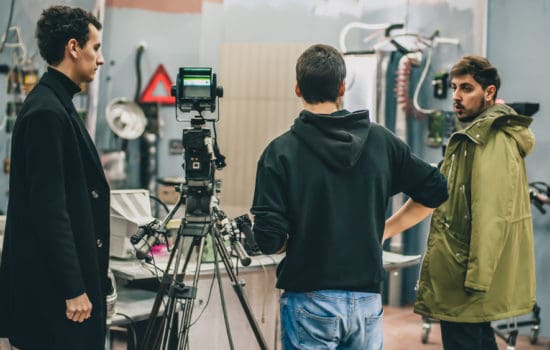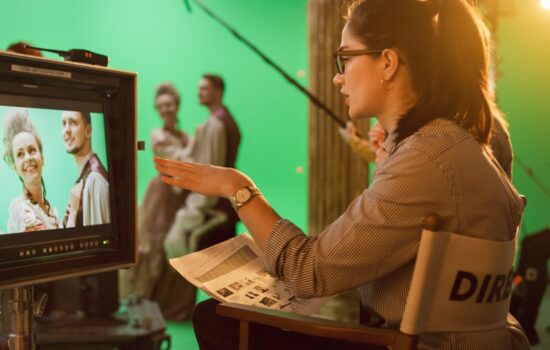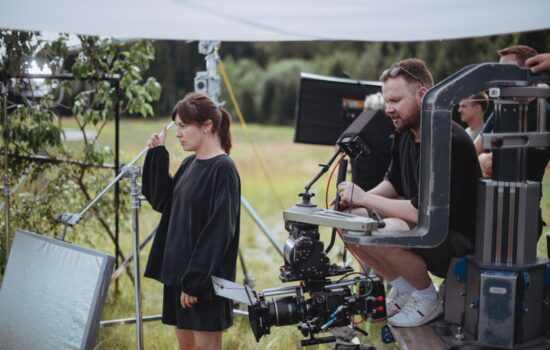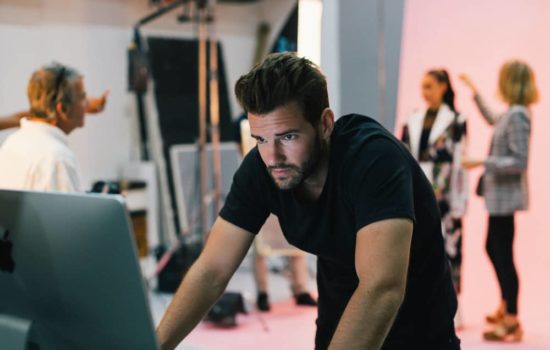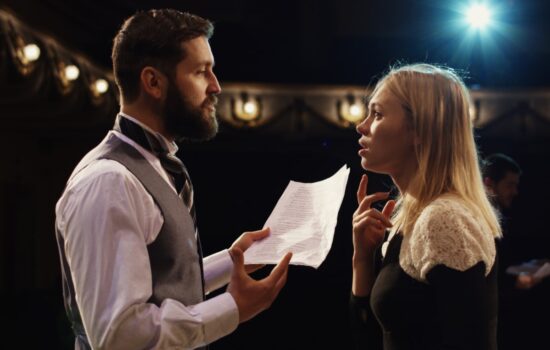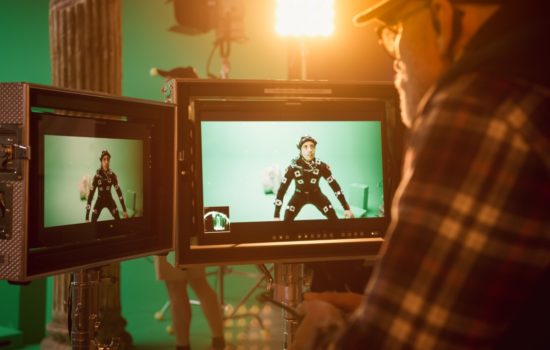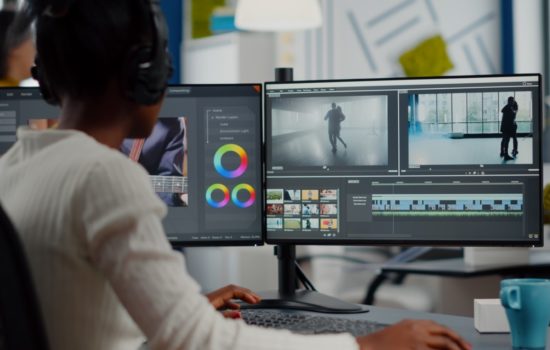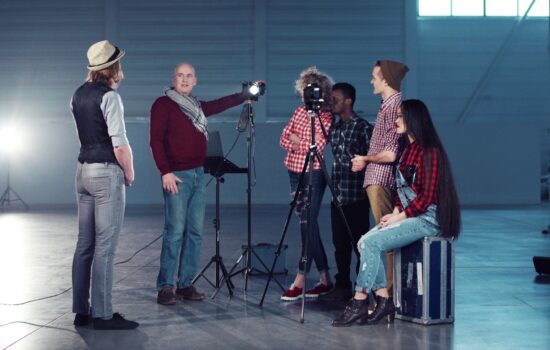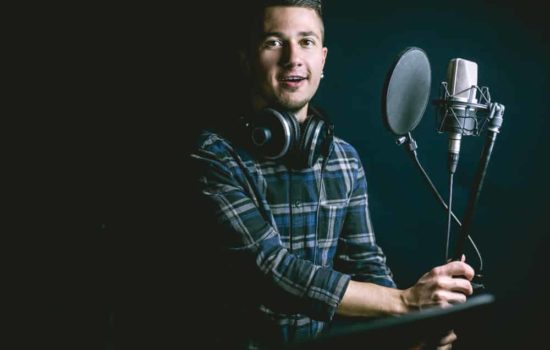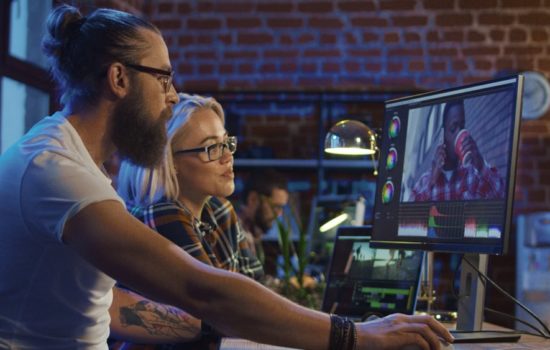Re-recording Mixer
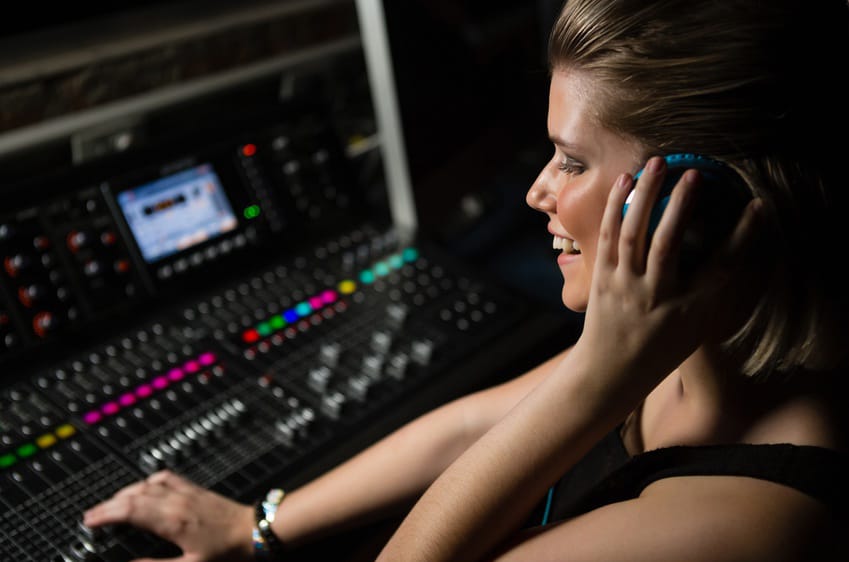
How To Become a Re-recording Mixer
People also ask
Career Description
The Re-recording Sound Mixer does the final theatrical mix for a feature film or television show.
“They work in rooms that emulate (or are) theatre spaces to set the levels for each of the individual stems from the Sound Effects Editor, Dialogue Editor, Background Editor and Music Mixer for the entire film,” explains Andres de la Torre, an instructor in Sound Design and Re-recording Mixing at the Los Angeles Film School who has worked with Terrence Malick, Randal Kleiser, and James Franco.
Their goal is to make a pleasant mix that tells the story in a dynamic and exciting way while keeping the soundtrack within industry-standard decibel levels. Once the theatrical mix is finished, they will also create a stereo downmix for home televisions and mobile devices.
The typical day of a Re-recording Sound Mixer involves collaborating with the Director and other sound professionals to set each of the various stem’s levels for about eight hours. The team works sequentially through the film, which has been broken down into reels. After the first pass of the entire project, they go back and tweak trouble spots then re-watch the entire reel to hear the adjustments in context.
The amount of time a Re-recording Mixer works on a project varies due to the budget. Renting the mixing space is quite expensive. If the film is working on a tight budget, the Re-recording Mixer does a pre-mix within their home and then checks the mix with the rest of the crew inside of the theater space.
Usually, it takes about a day’s worth of work to cover ten to twenty minutes of film. A typical feature’s timeline varies from one to two weeks, depending on the size of the production.
What does a Re-recording Mixer do?
A Re-recording Mixer is a post-production professional who takes all the many different audio tracks for a film, including the dialogue, score, and sound effects, and balances them to create a coherent and sonically pleasing audio track for the final film.
Salary
The average annual salary for Re-recording Mixers is approximately $74,000. The salary range for Re-recording Mixers runs from $30,000 to $158,000.
Re-recording Mixers are paid according to union scale. If they’re not yet members of the union, it’s up to them to establish their own day rates.
How much does a Re-recording Mixer make?
The salary of a Re-recording Mixer can vary according to multiple factors, including their experience, union status, number of gigs they get in a given year, and the overall budgets of the projects they take on. A veteran Re-recording Mixer who has union membership can make upwards of $150,000 in a given year. For someone relatively new to the profession, they might make closer to $30,000 in a year even with regular work.
Hey, what do you think about trying our new Film Career HelperFilm Career Helper really quick? It’s totally free and could help get your career moving fast! Give it a try. It’s totally free and you have nothing to lose.
Career Outlook
“The scale of a project determines when and how much a Re-recording Mixer works,” says De La Torre. If there’s a large budget, working hours are during the week. If the film has less money, the time for mixing will fall on evenings, nights, and weekends. During the week, mixing theatres are more expensive so timeframes vary for each production. Usually, each day lasts between eight to ten hours.
If the work extends beyond that time frame, the Re-recording Mixer’s ear gets tired and the quality of the session drops. More mistakes are made. Sometimes technical things, like printing stems, can be done because they don’t require a trained ear. (Often those tasks are done by an Assistant Re-recording Mixer if the budget permits having one.)
Re-recording Mixers usually take a day off to rest their ears before doing a final pass on a project or moving onto a new one.
The other professionals in the room are the Director, Producer, Post Sound Supervisor, Sound Editor, and Sound Engineer. Sometimes if the budget is high enough, there will be a second Re-recording Mixer. When two Re-recording Mixers work at the same time, one focuses on dialogue and music while the other handles sound effects. With a smaller budget comes fewer people, sometimes leaving just the Director and Re-recording Mixer.
Why is it called Re-recording Mixer?
A person is called a Re-recording Mixer because they are taking tracks that have already been recording either on set or in a post-production facility and merging them together in a new recording that balances all their many audio components to create a sonically pleasing soundtrack to the film.
Career Path
There are two different routes to take in becoming a Sound Re-recording Mixer, either the studio route or independent route. They both require extensive training; however, the studio usually takes longer and requires extra steps to becoming a Re-recording Mixer since it’s a corporate enterprise dealing with large budgets.
With the indie route, it’s easier for someone to start mixing earlier in their career but it’s still important to have the experience as a Sound Editor as well as an intimate understanding of each Post Sound Department. If there are any issues with the Post Sound Team’s work, it’s the Re-recording Mixer’s job to fix the issue.
An independent Re-recording Mixer will start by taking on small films, building their resume up so they can pitch on doing larger productions. Meanwhile, an aspiring studio Sound Re-recording Mixer will be gaining experience working in the big-budget environment as an assistant Sound Re-recording Mixer before getting promoted to work on a large production. They won’t necessarily have to work with small films and limited resources.
“Within both cases, talent and hard work determine how fast a Re-recording Mixer’s career progresses,” advises De La Torre.
If someone fresh out of college wants to become a Re-recording Mixer, joining a post sound facility as a general PA is a great way to gain experience. As time progresses, they can slowly work their way up to becoming an Assistant to a Dialogue Editor, Foley Editor, and/or Sound Editor.
After being an Assistant, they can work one of those jobs and become an Assistant Re-recording Mixer before taking on their first project as a Re-recording Mixer. De La Torre says, “This approach gives a well-rounded foundation and allows the aspiring Re-recording Mixer to work with professional equipment.”
- Listen to movies. (Don’t watch them).
- Play music or learn an instrument.
- Listen to music through high-quality speakers.
- Learn a post audio program like AVID’s Pro Tools or Adobe’s Audition.
Experience & Skills
A Re-recording Mixer needs a variety of skills to do their job effectively. At the top of the list is to be able to proficiently coordinate with the Post Sound Team. They provide the assets the Re-recording Mixer will use to do his or her job so if they are missing something it’s on the Re-recording Mixer to call them out on it.
The Re-recording Mixer should be able to edit dialogue, sound effects, Foley, and mix the levels in music to help fix any last-minute problems. Knowing how to record sound for production can be an asset for problem-solving in the room, as well.
“Finally, having a musical background is a great foundation for training ears and growing more sensitive to sonic rhythms,” says De La Torre. Many of a Re-recording Mixer’s necessary skills can be developed working within a Post Sound Team and learning from other professionals.
A collaborative person with attention to detail and time management skills will make a wonderful Re-recording Mixer. The people most likely to succeed are those who operate at an almost obsessive-compulsive level in regards to their work while being almost ego-less regarding any changes that are asked of by the Director.
“Re-recording Mixers need to be able to do creative work without holding on tightly because it’s always the Director’s final decision and a lot of money is being spent during any disagreement,” says De La Torre.
It’s still important to give creative input but letting go of an opinion will contribute to getting rehired. Time management skills are a huge plus, too. If a movie has only three days of mixing, it must be finished within the allotted time frame. Sometimes it’s for the good of the entire movie to move on from a section that feels a bit messy.
Education & Training
“Creative Sound Design and Mixing have only been around for the past twenty-five to thirty years,” De La Torre says. “Some auteur Directors and Producers incorporated it into their films before then but the mainstream film industry has only recently introduced it as a creative position.”
As such, there aren’t a lot of film schools that offer a track focused on post sound. Therefore, many people join a film production program and start doing sound for film in their free time. There are also some specific academies that train in sound engineering skills; however, those just give a starting point when it comes to film. The real world of filmmaking is much different than the one of academia.
The best education that can be acquired for becoming a Re-recording Mixer is to work as an Assistant Sound Editor and then move up to working with or as a member of each Post Sound Department. This experience will allow the Re-recording Mixer to problem solve faster when issues arise and save the production money. The more money Producers save, the more likely they will be to do a rehire in the future.
Additional Resources
“There are two great online resources to check out for post sound. The first is FilmSound.org, which gives a comprehensive explanation of sound theory for each of the jobs in the post-production world. The other is SoundworksCollection.com and it is full of videos, interviews, and media.
“There are also podcasts, behind-the-scenes clips, and articles on there as well, with sound effects libraries to download. Between these two resources, a beginning sound professional can learn theory and have access to engaging resources,” De La Torre says. Another good source of info is the union, Local 695.
FAQ
What is the single biggest suggestion you would give to someone wanting to get into this career?
“A Re-recording Mixer is a very technical position but it also requires a lot of creativity. The best stories don’t always have the most money so choosing what kinds of films rising Re-recording Sound Mixers want to do is important.
“There is no right answer. It’s a question of personal fulfillment and paying the rent. Sometimes taking a big commercial film will enable the Re-recording Mixer to give a better rate on an interesting independent project that is a passion project.”
What’s the #1 mistake people make when trying to get into this career?
“The biggest mistake people make when trying to break into the re-recording mixing field is to abide by certain rules. Things don’t sound different until they sound different and individuals should try to break the mold and push the art form. It’s easy to let the technical aspects of the job supersede the artistry.
“Remember, the audience doesn’t share the same constraints. They don’t know what is deemed ‘right.’ Viewers just hear what they hear and make the decision whether they like it or not. Don’t get sucked into emulating someone else.”
What is the question people should ask about this career but rarely do?
“What makes you passionate about re-recording mixing?
“The most inspiring thing about sound is its illusory qualities. The soundscape of a film is the most subliminal tool a filmmaker has to affect his or her audience’s brain and control their emotions. They literally feel the effects of it on their bodies and change their opinion on what is being seen.
“That can be very intriguing because it becomes a sort of dance with the subconscious. To witness the power of sound, watch a horror film with an upbeat soundtrack and suddenly it becomes a comedy.”
What is one thing I should have asked which I didn’t?
“What could a student do to train at home to become a Re-recording Mixer?
“The best sort of self-training for an aspiring Re-recording Mixer would be to slowly build a home studio. Through the process of acquiring gear and researching how to set it up, they’ll learn a lot about acoustics. Listening to sounds in space will teach them how air is pushed at different frequencies. When it’s time to work on a larger project, they can take that knowledge into a professional theater space.
“Additionally, creating a home studio will give them the capacity to take on independent films that have a budget which won’t pay for a large space and [this will help them] gain more practical experience earlier in their career. The more an aspiring Re-recording Mixer practices and understands the theory of what they’re doing, the better they’ll become.”
If you could describe in one word what makes you successful, what would it be?
“Reliability.”
Sources
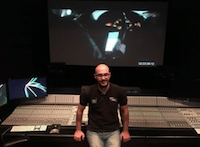
Andres de la Torre
Andres de la Torre is an award-winning Composer, Editor, and Sound Designer. Born and raised in Madrid, De la Torre started his career as a Video Editor in one of the leading production companies in Spain, MediaPro.
His true passion, though, was always to compose music for film. His first feature as a Composer, Going Nuts (2006), had a theatrical release and was the first film in the world to feature peanuts as the main characters. The score earned De la Torre national recognition with the Ateneo Coste Cero Award in 2008 for Best Soundtrack.
Shortly thereafter, De la Torre wrote the music for the Spanish-North American co-production Disney: Through the Looking Glass (2010), a score that earned him his first Jerry Goldsmith Award after five years of consecutive nominations.
In 2010, De la Torre moved to Los Angeles to continue his education. He earned a Master’s Degree from Chapman University and soon started working in film post-production with Directors of the stature of Randal Kleiser (Grease) and Terrence Malick (The Tree of Life).
Currently, De la Torre teaches Sound Design and Re-recording Mixing at the Los Angeles Film School and is a Lecturer at Chapman University’s Dodge College of Film and Media Arts as he continues to collaborate on projects.
His latest work includes the TV drama Dead Men: The Series (2015), a new feature adaptation of Don Quixote of la Mancha (2014), produced by USC in collaboration with James Franco and Defrost (2017) a virtual reality series in the new Dolby Atmos format.
References
- 1Multiple. "Average Re-Recording Mixer Salary". PayScale. published: . retrieved on: August 24, 2020
